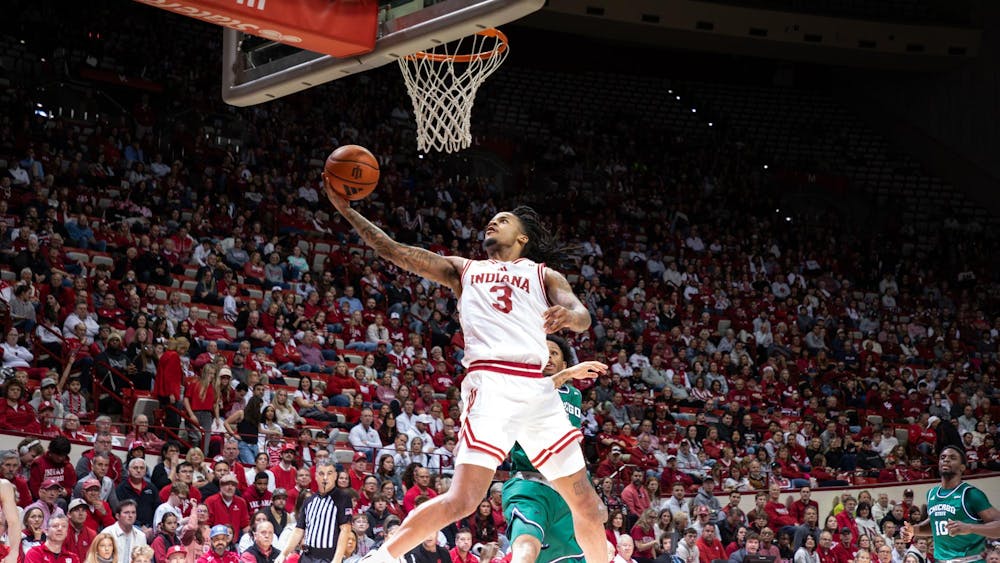Award-winning civil rights historian Taylor Branch wants IU to pay student athletes.
Branch recently wrote the cover story for the October issue of The Atlantic magazine, titled “The Shame of College Sports”, and has expanded the story into an eBook called “The Cartel,” available from Byliner.com.
In it, he explores the history of the NCAA, dating back to the early days of football in the years after the Civil War, and ultimately makes the argument that college athletes should be paid.
“I went in trying to purify amateurism,” Branch said. “The more I was in there, it seemed that nobody was asking the basic questions. I was constantly amazed about what I didn’t know.”
On Thursday, Branch spoke to Riley Endowed Chair in Journalism Thomas French’s Story Mechanics class about his recent work in The Atlantic and his reporting and writing techniques.
“Journalists are trained to think that the only goal is to talk about yesterday. The stories that really shape us are timeless,” French said. “It’s really a talk about how we think more deeply about the world around us. I thought he was terrific.”
According to Branch’s article, the self-imposed “amateurism” the NCAA enforced on players is an abusive relationship that harms the “student athletes” it is meant to protect.
“Slavery analogies should be used carefully. College athletes are not slaves,” Branch wrote in The Atlantic article. “Yet to survey the scene — corporations and universities enriching themselves on the backs of uncompensated young men, whose status as ‘student athletes’ deprives them of the right to due process guaranteed by the Constitution — is to catch an unmistakable whiff of the plantation.”
Senior Sean Morrison helped convince Branch to speak to the class. He filled out a contact form on Branch’s website and did not expect a response.
“I sent him an email,” Morrison said. “I was shocked when he got back as soon as he did. He really is interested in the college side of it.”
Branch replied within hours and, after some scheduling issues, set up a time to Skype with the class. Morrison said hearing the historian talk about his reporting persistence while working on this story was helpful in his own reporting.
“As a reporter, it was stepping out and asking those basic questions,” Morrison said. “This is college. These are student athletes. They are generating a lot for the university.”
Branch said it was those basic questions that helped him focus during his investigation into the NCAA. He likened the problems he wrote about to the current Penn State debacle. Ultimately, he said, it was a conflict of money and power.
“All journalists have to operate within the rules,” Branch said. “But you can always be asking a more basic question, which is ‘How did Penn State’s athletic department get all its power?’”
He also talked about the conflict between reporters and their sources, especially with stories that could be perceived as negative. Branch’s best advice was a line Stephen Colbert told him when he visited “The Colbert Report” in October: “Grow a pair.”
“Reporting is a contact sport, just like football. I think any reporter that addresses any issue with sports is at risk of being hurt by the sports department,” Branch said. “That’s one reason I’ve gone from journalism to history, because it’s a lot easier to write about people who are dead.”
Ultimately, Branch said he hoped for university officials, students, faculty, coaches and athletes to sit down and talk about the best way for athletes to receive compensation for their work as students and as athletes.
“I think the issue journalists and students need to raise is how everyone can get a seat at the table on how sports and academics can work together,” Branch said.
Branch argues for athlete pay, speaks to journalism class
Get stories like this in your inbox
Subscribe





